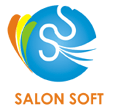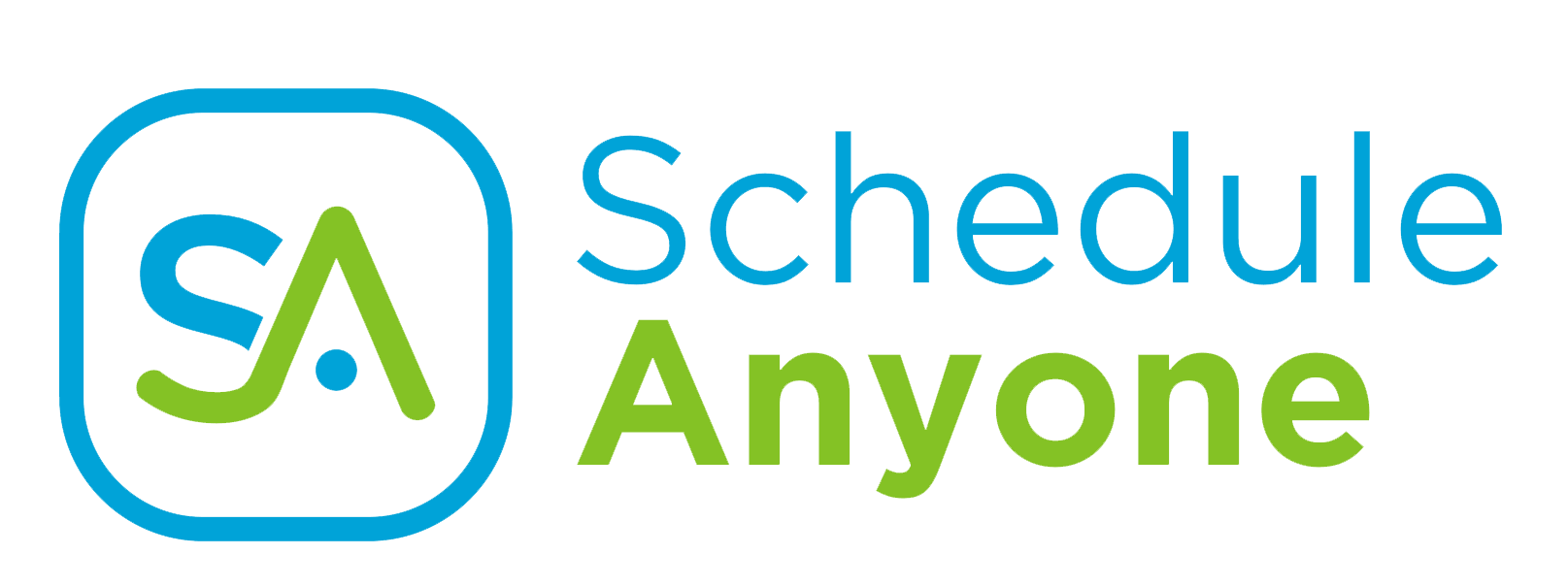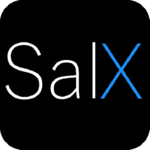Description

Salon Advance

Salon Soft
Comprehensive Overview: Salon Advance vs Salon Soft
As of my last update, information about "Salon Advance" and "Salon Soft" isn't specifically detailed in major public databases or widely recognized industry reports. This might indicate that these are niche products, boutique solutions, or newer offerings in salon management software. Given that context, here is a breakdown on how to approach evaluating such products based on general industry trends and possible features:
a) Primary Functions and Target Markets:
Primary Functions:
Both Salon Advance and Salon Soft, like most salon management software, likely offer a range of features designed to streamline operations for salons and related businesses. Common functions could include:
- Appointment Scheduling: Allows customers to book appointments online, reducing administrative burden.
- Client Management: Aims to store and manage client information and history to foster better customer relationships.
- Point of Sale (POS) Integration: Facilitates transactions directly linked to client profiles and sales data management.
- Inventory Management: Tracks product stock levels and generates reorder alerts.
- Staff Management: Schedules staff shifts and tracks performance metrics.
- Marketing and Communication Tools: Could offer email/SMS campaigns to attract or retain clients.
- Reporting and Analytics: Provides insights into sales, booking trends, and other key performance indicators (KPIs).
Target Markets:
- Salons and Spas: The primary market for these solutions, ranging from small, independently owned businesses to larger chains or franchises.
- Wellness and Beauty Centers: Including massage parlors, nail salons, and skin care clinics.
- Other Appointment-Based Industries: These could extend to gyms, personal training, and counseling services where client management and scheduling are crucial.
b) Market Share and User Base:
Without specific industry reports on Salon Advance and Salon Soft, it's challenging to pin down exact market share and user base data. Generally, the salon software market is competitive, with many players. Larger and more established brands (like Mindbody, Square Appointments, or Fresha) dominate the market, making it essential for niche products to carve out unique selling points or focus on specific sub-segments of the market.
c) Key Differentiating Factors:
The differentiating factors for salon management software can vary widely, but potential areas of distinction might include:
- Customization and User Experience: How customizable is the software according to specific salon needs, and how intuitive is the user interface?
- Price Point: Pricing models (subscription vs. one-time purchase) can significantly differentiate products. For budget-conscious small business owners, cost is a crucial factor.
- Integration Capabilities: The ability to integrate with existing systems like accounting software, e-commerce platforms, or specific third-party apps could give one product an edge.
- Support and Training: Availability of customer support, training resources, and user community can be differentiators, especially for businesses that prioritize quick onboarding and problem resolution.
- Innovative Features: AI-driven analytics, virtual consultations, or augmented reality features for trying out hairstyles or products can be attractive to tech-savvy salon operators.
- Mobile Access: The extent to which the software supports mobile functionality for on-the-go access by both staff and clients.
For exact information, including detailed comparisons, check specific company releases, user reviews, and industry publications. Engaging with online communities or user forums can also yield insights into real-world advantages and drawbacks of each product.
Contact Info

Year founded :
Not Available
Not Available
Not Available
Not Available
Not Available

Year founded :
2013
Not Available
Not Available
Brazil
http://www.linkedin.com/company/salon-soft
Feature Similarity Breakdown: Salon Advance, Salon Soft
To provide a feature similarity breakdown for Salon Advance and Salon Soft, I'll break down their similarities, differences, and unique features as requested:
a) Core Features in Common
Both Salon Advance and Salon Soft are salon management software solutions designed to streamline operations and enhance the customer experience. The core features they typically have in common include:
- Appointment Scheduling: Both platforms offer robust scheduling tools that allow salon staff to book and manage appointments easily.
- Client Management: Features for maintaining detailed client records, including contact information, appointment history, and preferences.
- Point of Sale (POS) System: Integrated POS capabilities to manage sales transactions, process payments, and handle various payment methods.
- Inventory Management: Tools for tracking product stock levels, managing supplier information, and ordering.
- Reporting & Analytics: Both offer reporting functionalities to track sales, monitor business performance, and analyze customer trends.
- Staff Management: Features for managing staff schedules, tracking hours, and assessing performance.
- Online Booking: Allowing clients to book their appointments online at their convenience.
- Marketing Tools: Email and SMS marketing tools to engage clients with promotions, appointment reminders, and newsletters.
b) User Interface Comparison
Salon Advance UI:
- Designed with a focus on simplicity and ease of use.
- Typically features a sleek, minimalist layout that emphasizes functionality.
- May prioritize quick navigation with tabs and dashboards for accessing various features quickly.
- The color scheme is often soft and professional, aligning with modern design trends.
Salon Soft UI:
- Often has a more vibrant and customizable interface.
- Tends to provide more options for personalization, allowing users to adjust layouts and themes to suit their needs.
- Focuses on intuitive navigation with detailed icons and clear labeling.
- May offer interactive tutorials and tips to help users get acquainted with their systems.
c) Unique Features
Salon Advance Unique Features:
- Customizable Workflow Automation: Offers advanced automation tools for creating custom workflows, enhancing operational efficiency.
- Advanced Reporting Modules: Provides in-depth analytics and customizable reports for specific business insights.
Salon Soft Unique Features:
- Loyalty Program Integration: Additional tools designed to create and manage customer loyalty programs seamlessly.
- Social Media Integration: Enhanced integration with social media platforms for marketing and customer engagement.
While both software solutions serve similar purposes, their approach to design and unique feature sets may appeal differently to salons based on their specific operational needs and business models.
Features

Financial Management
Appointment Management
Inventory Management
Customer Management

Client Management
Inventory Management
Appointment Scheduling
Employee Management
Payment Processing
Best Fit Use Cases: Salon Advance, Salon Soft
Salon Advance and Salon Soft are both software solutions designed for the salon and spa industry, each with its unique features and strengths. Here’s a breakdown of their best-fit use cases:
a) For what types of businesses or projects is Salon Advance the best choice?
Salon Advance is best suited for:
-
Medium to Large Salons and Spas:
- Businesses that have a higher volume of clients and require robust scheduling capabilities, inventory management, and customer relationship management (CRM).
- Salons that operate multiple locations and need a platform that allows seamless integration across branches.
-
Businesses Focused on Advanced Analytics:
- Salons that need detailed reporting and analytics to make data-driven decisions about inventory, staffing, and marketing strategies.
-
Enterprises Looking for Customization:
- Businesses that require customizable features to fit specific business processes or branding needs.
-
Establishments with Complex Operations:
- Salons and spas that offer a wide range of services and products, requiring comprehensive inventory management and booking systems.
b) In what scenarios would Salon Soft be the preferred option?
Salon Soft is ideal for:
-
Small Salons and Start-Ups:
- Smaller establishments that need an intuitive, easy-to-use interface without the complexity of features designed for larger operations.
- Businesses with a limited budget that require essential salon management tools like scheduling, billing, and client management.
-
Mobile and Freelance Stylists:
- Individuals who offer services at various locations and need a portable solution that can be managed from a smartphone or tablet.
-
Salons Prioritizing User-Friendliness:
- Businesses that value straightforward setup and operation to minimize the need for extensive training or IT support.
-
Scenarios with Limited IT Support:
- Salons that prefer a cloud-based solution with minimal IT infrastructure, offering reliability and ease of access.
d) How do these products cater to different industry verticals or company sizes?
Industry Verticals:
-
Hair Salons: Both products offer specialized tools for appointment scheduling, stylist management, and retail sales, but Salon Advance might offer more in-depth inventory controls suitable for higher volumes.
-
Spas and Wellness Centers: With features catering to multiple services per booking, complex treatment schedules, and resource allocations, Salon Advance could be preferred. However, Salon Soft provides essential spa features that smaller centers can efficiently manage.
-
Beauty and Nail Salons: These businesses would benefit from both platforms, though Salon Soft may be more attractive for straightforward operations, while Salon Advance might be opted for when there's a need for advanced customer loyalty programs and promotions.
Company Sizes:
-
Small Businesses: Salon Soft is generally more beneficial due to its simplicity, cost-effectiveness, and essential features.
-
Medium to Large Enterprises: Salon Advance is preferred for its scalability and advanced functionalities that support more significant revenue streams, multiple service lines, and extensive customer bases.
In summary, choosing between Salon Advance and Salon Soft depends on the business size, budget, operational complexity, and specific features required by the salon or spa to enhance its service delivery and management efficiency.
Pricing

Pricing Not Available

Pricing Not Available
Metrics History
Metrics History
Comparing undefined across companies
Conclusion & Final Verdict: Salon Advance vs Salon Soft
To provide a well-rounded evaluation of Salon Advance and Salon Soft, let’s distill the key points regarding their value propositions, advantages, and drawbacks, and offer recommendations for potential users.
Conclusion and Final Verdict
a) Best Overall Value
When determining the best overall value between Salon Advance and Salon Soft, it depends on specific business needs and preferences. Salon Advance typically offers a robust suite of features aimed at larger salons with complex needs, while Salon Soft is often more affordable and user-friendly for smaller salons or those new to salon management software.
b) Pros and Cons
Salon Advance:
Pros:
- Comprehensive features: Advanced booking systems, inventory management, and detailed client records suitable for medium to large businesses.
- Customization: Highly customizable to fit specific business workflows and requirements.
- Scalability: Easier to scale as the business grows, supporting multiple locations and complex operations seamlessly.
Cons:
- Cost: Higher upfront and recurring costs, which may be less feasible for small businesses or startups.
- Complexity: The feature-rich nature might require more training and onboarding time for staff.
Salon Soft:
Pros:
- Affordability: Generally lower price points make it more accessible for small salons on a budget.
- User-friendly: Simpler interface and fewer complexities make it easy for staff to learn and utilize efficiently.
- Quick setup: Faster implementation and less training required.
Cons:
- Limited features: May lack some of the advanced tools needed for larger or fast-growing salons.
- Scalability: Can be less effective for multiple locations or highly diverse business models as operations expand.
c) Recommendations for Users
-
For Small Salons or Startups: If cost-efficiency and ease of use are priorities, and the salon does not require extensive features, Salon Soft is likely the better choice. It offers essential functionalities at a lower price, making it easier to manage daily operations without significant investment.
-
For Medium to Large Salons: If a business anticipates growth or already operates at a larger scale, Salon Advance may provide better long-term value. Its expansive features and capacity for customization offer a more comprehensive toolset that can support complex operations and a larger client base.
-
Specific Needs Consideration: Evaluate the specific needs of your salon, such as the importance of multi-location support, the necessity for detailed analytical tools, and the desired level of customer engagement features. Choose the software that aligns best with these critical business requirements.
In conclusion, the decision between Salon Advance and Salon Soft should be based on the salon's size, budget, and specific operational needs. Thoroughly assessing these factors will guide users to the product that offers the best fit and long-term value for their business.
Add to compare
Add similar companies



